A focus on planetary health, 4th September 2022
This week I am preparing my talk at the Doctors for Extinction Rebellion Festival of Resistance on September 11th 2022
The climate crisis is a health crisis and our food choices matter. Without addressing food production and consumption, we cannot meet our climate and nature commitments. There is a clear consensus that we need a global shift away from animal agriculture towards a plant-based food system. Healthcare professionals have been called to action and should be leading by example, supporting patients and communities to make healthier choices that will improve their quality of life and those of future generations.
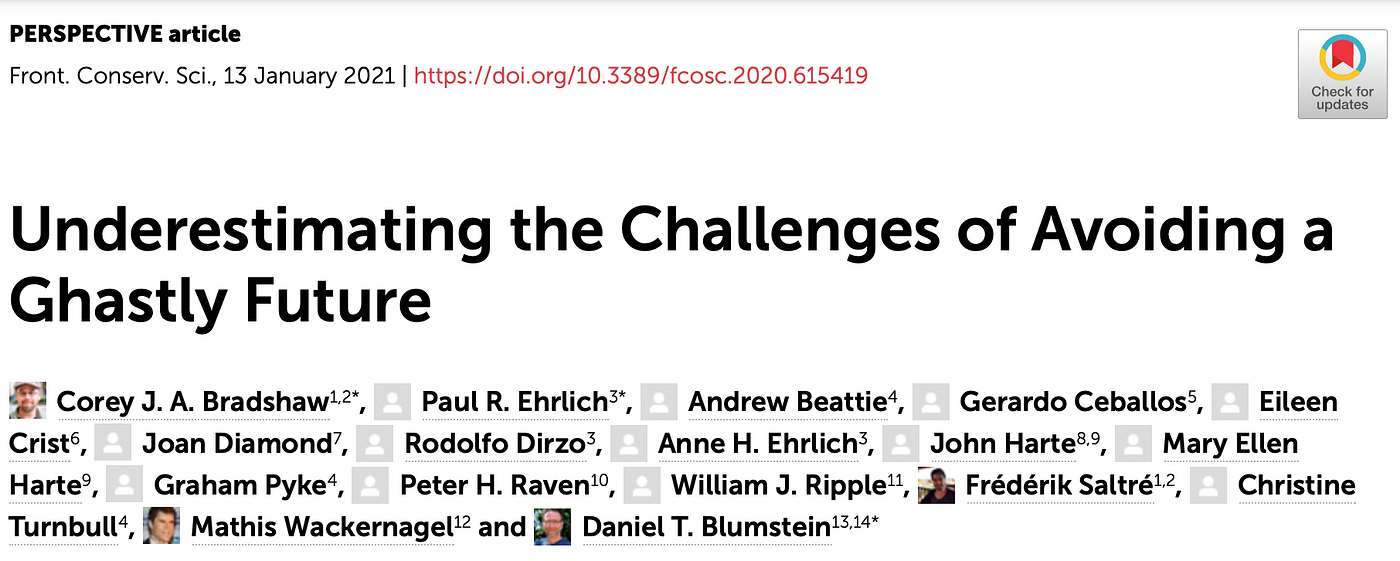
FOOD SYSTEM AND GLOBAL CRISES: Our food system is at the centre of 4 urgent global crises. Health, climate, biodiversity and soil. There is also a 5th crisis, one of ethics, whereby our food system harms people and animals and keeps nearly a billion people hungry, despite producing enough food to feed 10 billion. In addition, our food system is a major driver of antibiotic resistance, air pollution and pandemic risk, all global issues adversely affecting health.
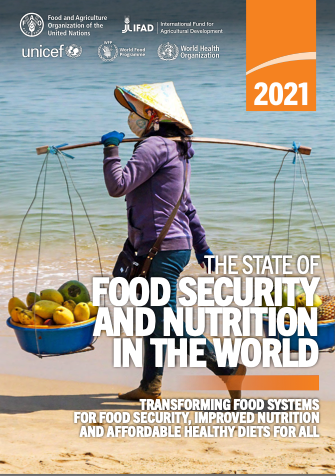
REQUIREMENTS OF A FOOD SYSTEM THAT IS FIT FOR PURPOSE: The global food system needs to provide healthy and nutritious food, be sustainable for producers, society and the planet, be affordable and accessible, culturally adaptable and also kind and compassionate. Currently, the global food system fails to meet these requirements.

DIET-RELATED DISEASES: The 2021 Global Nutrition Report found that diet-related disease and deaths have risen, accounting for a quarter (26%) of all adult deaths each year. The proportion of premature deaths attributed to dietary risks is highest in Northern America and Europe (31% each), and lowest but also at notable levels in Africa (17%). No region of the world is meeting recommendations for healthy diets. Fruit and vegetable intake is still about 50% below the recommended level of five servings per day that is considered healthy (60% and 40% respectively), and legume and nuts intakes are each more than two thirds below the recommended two servings per day. In contrast, red and processed meat intake is on the rise and almost five times the maximum level of one serving per week, while the consumption of sugary drinks, which are not recommended in any amount, is going up as well.
A review of global diets in 195 countries found that diets are too high in processed and animal-derived foods and insufficient in healthy plant foods. The report concluded that ‘a suboptimal diet is responsible for more deaths than any other risks globally, including tobacco smoking’. These deaths are predominantly due to cardiovascular disease, cancer and type 2 diabetes.

URGENT TRANSITION TO A PLANT-BASED FOOD SYSTEM: A large number of reports have emphasised the need for an urgent transition to a plant-based food system for both human and planetary health. I highlight a report by The Eat Forum titled ‘Diets for a better future’. The report examined how NDGs in G20 countries need to be shifted to improve human health and environmental outcomes. The foods associated with the greatest benefits for health and the lowest environmental impact are fruits, vegetables, whole grains, legumes, nuts and seeds. However, current dietary patterns in the majority of G20 countries far exceed food system planetary boundaries and even if citizens followed their country-based dietary guidelines, food system planetary boundaries would still be exceeded. If all countries consumed the diet of high-income countries we would need 7 planets to feed the World! Of course, the impact of these unsustainable diets, such as climate change and biodiversity loss, is felt more acutely in low incomes countries, who contribute the least to these harms and have less resilience to cope.

MORE NUTRITIOUS FOODS TEND TO BE MORE SUSTAINABLE: This first of a kind study provides an estimation of the environmental impact of >57,000 food products in the United Kingdom and Ireland across four indicators: greenhouse gas emissions, land use, water stress, and eutrophication potential. This is in contrast to prior studies that have compared the impacts of food commodities such as fruits, wheat, and beef. Given that the foods we eat tend to contain numerous ingredients, the current analysis enabling consumers, retailers, and policy makers to make more informed decisions about food products.
Overall the results are consistent with prior studies, such that animal derived foods have a greater environmental impact than plant-based foods. In addition, the study confirms that more nutritious foods tend also to have a lower environmental impact, confirming we don’t need to compromise on our personal health to support planetary health.
This fantastic new tool from Our World in Data allows you to assess the environmental impact of your food choices.

THE CURRENT FOOD SYSTEM HARMS NATURE: This report from Chatham House clearly highlights how global food production is degrading or destroying soil, natural habitats and contributing to species extinction. To change this trajectory we need to change dietary patterns to reduce food demand and encourage more plant-based diets, protect and set aside land for nature and shift to more sustainable farming methods.

SUSTAINABLE DEVELOPMENT GOALS. It is clear, that without addressing global diets, we will not be able to meet the Sustainable Development Goals or limit global warming to below the 1.5 degree Celsius set by the Paris Agreement in 2015. The results of the paper highlighted finds that, ‘Even if fossil fuel emissions were eliminated immediately, emissions from the global food system alone would make it impossible to limit warming to 1.5°C and difficult even to realise the 2°C target’.
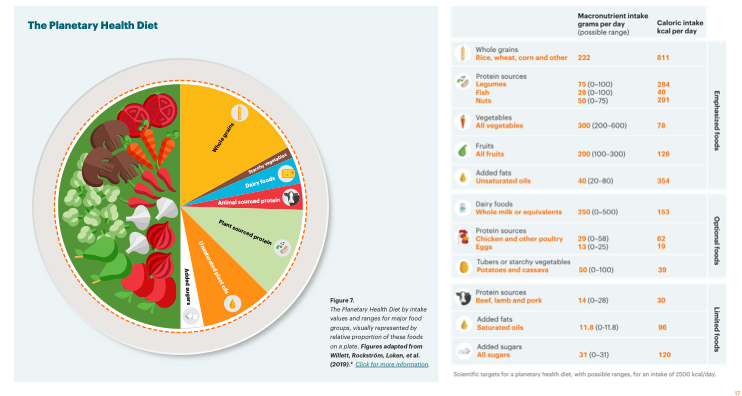
THE PLANETARY HEALTH DIET created by the Eat Lancet commission is a reference diet that will keep the food system within planetary boundaries whilst improving human health and preventing an estimated 11 million deaths globally per year. It is a predominantly plant-based diet with animal foods considered to be optional and if consumed, contributing to less than 15% of energy intake. This amounts to one portion of red meat per week, 2 portions of poultry and 3 eggs for example. This type of diet would be expected to be culturally and geographically adapted but what is clear is that in high-income countries such as UK, USA and Australia, radical shifts in guidelines and diets need to be made as shown in the image below. Red and processed meat consumption would need to be cut by 400% whereas the consumption of whole plant foods would need to be doubled.
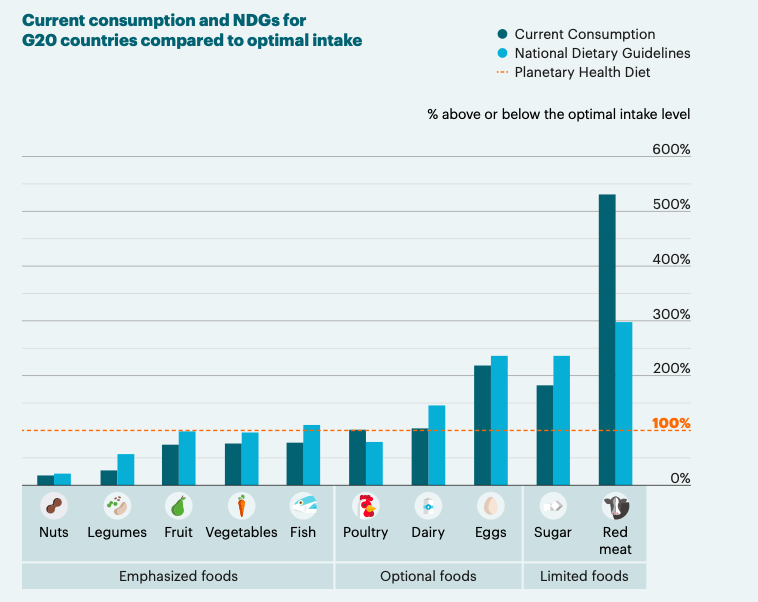
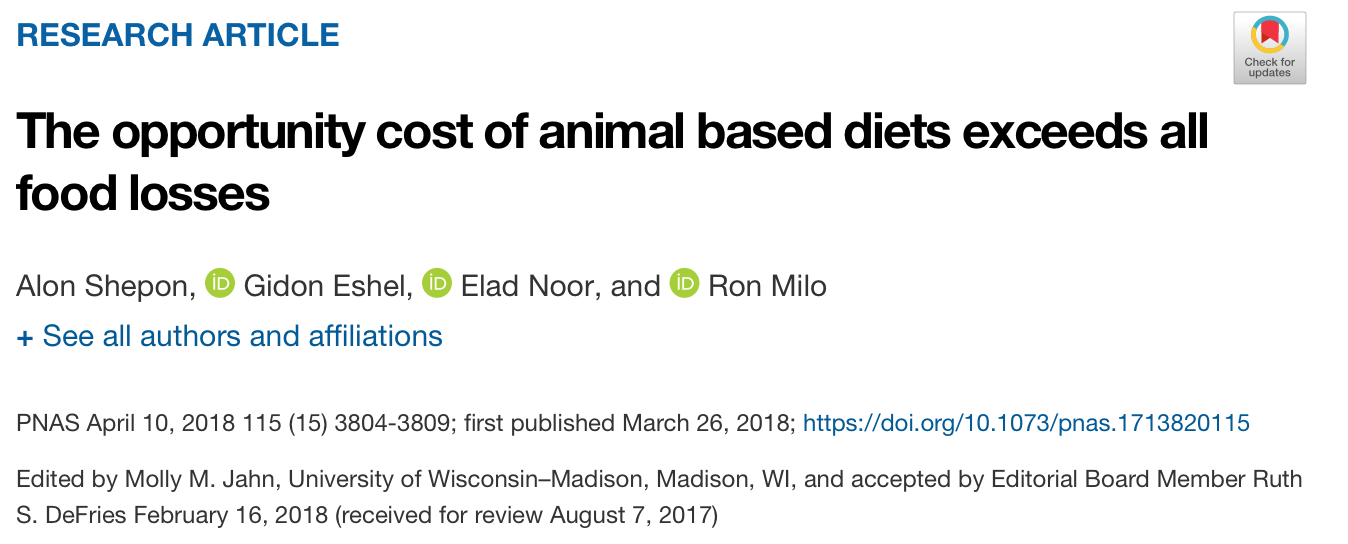
WE CAN FEED THE WORLD ON A PLANT-BASED DIET: A common misconception is that a plant-based food system cannot produce enough food to feed 10 billion people. However, the science refutes this argument. The paper highlighted shows that in the United States, plant-based replacements for each of the major animal categories, beef, pork, dairy, poultry, and eggs, can produce twofold to 20-fold more nutritionally similar food per unit cropland. Replacing all animal-based items with plant-based replacements could add enough food to feed 350 million additional Americans, more than the expected benefits of eliminating all food waste.

COST OF HEALTHY DIETS: Most studies show that a healthier, more sustainable diet would not be more expensive than current diets and may even be cheaper. Modelling from the UK and shows that a shift towards a diet more in line with the Eatwell Guide would not significantly alter cost. Similarly, a study from Australia showed that shifting to the Planetary Health Diet could be cheaper than the current diet of metropolitan-dwelling Australians.
The study highlighted compared the cost of seven sustainable diets to the current typical diet in 150 countries, using food prices from the World Bank’s International Comparison Program. The results showed that in high-income countries, vegan diets were the most affordable and reduced food costs by up to one third. Vegetarian diets were a close second. Flexitarian diets with low amounts of meat and dairy reduced costs by 14%. However, pescatarian diets increased costs by up to 2%.
Nonetheless, we have to appreciate that currently healthy diets are not affordable for low income families. In the UK, the 2022 Broken Plates report from The Food Foundation shows that the poorest fifth of UK households would need to spend 47% of their disposable income on food to meet Eatwell Guide costs. This compares to just 11% for the richest fifth. This is where we need to find local solutions to ensure healthy and sustainable diets are in fact affordable for all.

NATIONAL DIETARY GUIDELINES present a huge opportunity to facilitate the transition to a healthy and sustainable diet. The study highlighted analysed NDGs of 85 countries and concluded that although the adoption of these guidelines have the potential to reduce premature mortality, they could do better in terms of healthiness and in addition, most were not compatible with meeting global environmental targets; ‘Providing clearer advice on limiting in most contexts the consumption of animal source foods, in particular beef and dairy, was found to have the greatest potential for increasing the environmental sustainability of dietary guidelines’.

PLAN(E)T-BASED DIETS: The world wildlife fund report on the restorative power of planet-based diets highlights that NDGs are important tools for changing diets and acting as a bridge between global dietary recommendations and local context and relevance. Yet they conclude that current NDGs are not ambitious enough to achieve global goals and commitments. Some countries are taking significant steps to promote healthy and sustainable dietary patterns. Canada launched a food guide in 2019 that recommends half the plate of vegetables and fruits, a quarter of the plate wholegrain foods and emphasises obtaining protein from plant-based sources such as beans, lentils and nuts. Additional, dairy has been removed as a food group.


DO PLANT-BASED OR VEGAN DIET RISK NUTRIENT DEFICIENCIES? This is a common albeit overstated concern. This very useful study aimed to assess the nutritional adequacy of meat-based diets compared to plant-based diets (mainly vegetarian and vegan). It is a systematic review of observational and intervention studies published between 2000 and January 2020 and included a total of 141 (101 studies on meat eaters, 118 vegetarians, 63 vegans) mostly from Europe, South/East Asia, and North America.
The results showed that overall, all diet patterns were found to have nutritional inadequacies. Meat-eaters were at risk of inadequate intakes of fibre, polyunsaturated fatty acids (PUFA), alpha-linolenic acid (ALA), folate, vitamin D, E, calcium and magnesium. Vegetarian and vegans had lower intakes of eicosapentaenoic acid (EPA) and docosahexaenoic acid (DHA), vitamin B12, vitamin D, iron, zinc, iodine, calcium and lower levels of bone turnover markers than meat eaters. Vegans had the lowest vitamin B12, calcium and iodine intake, and also lower iodine status and lower bone mineral density. Fibre, PUFAs, folate, vitamin C, E and magnesium intakes were high in plant-based diets. Average fibre intake amongst vegans was 44g/d compared to 28g/d in vegetarians and 21g/d in meat eaters. All diet groups met protein and energy requirements. There was no mention of saturated fat intake which I assume was high in meat eaters.
The table below summarises the findings.
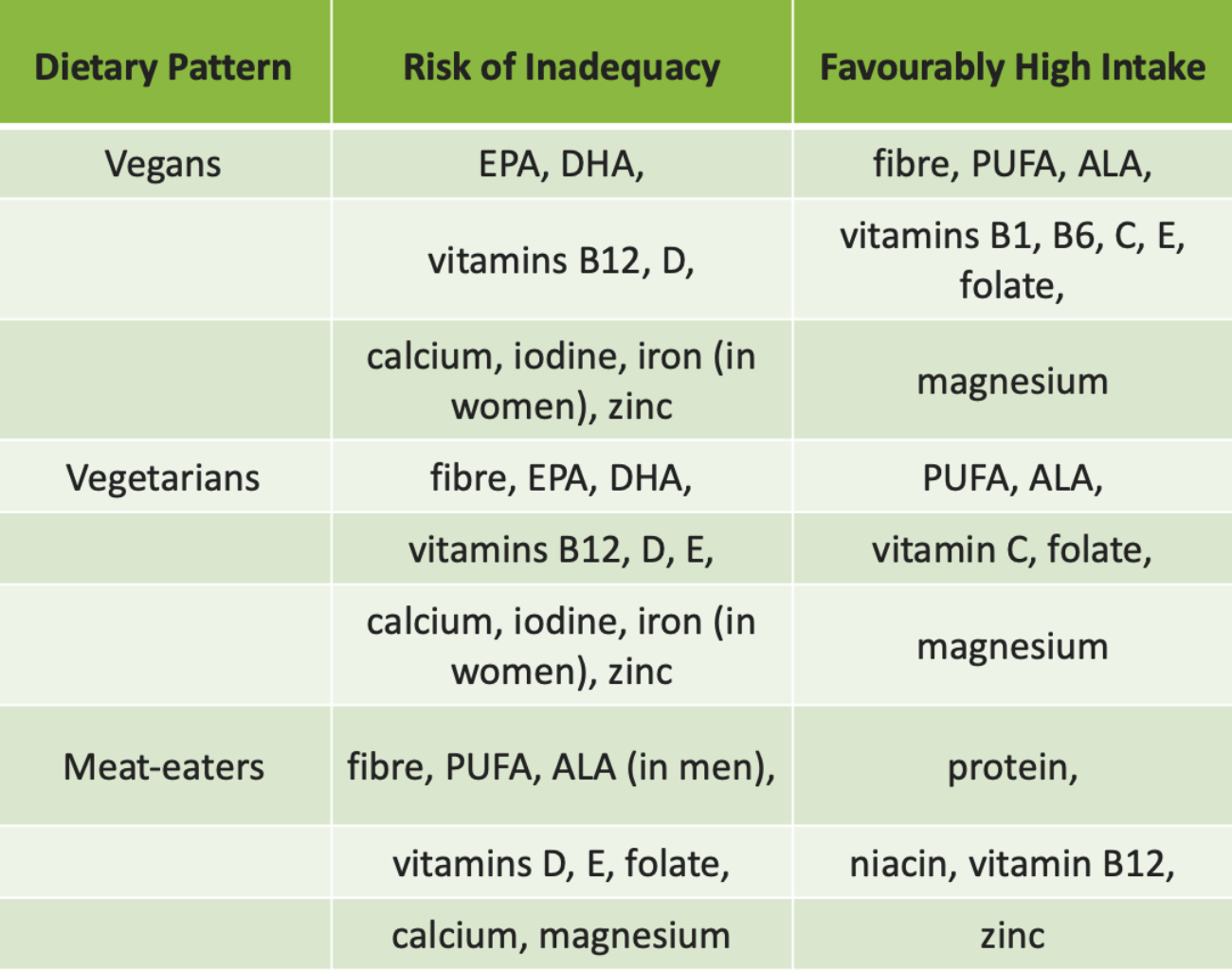
The authors’ conclusion is eminently sensible. ‘There were nutrient inadequacies across all dietary patterns, including vegan, vegetarian and meat-based diets. As plant-based diets are generally better for health and the environment, public health strategies should facilitate the transition to a balanced diet with more diverse nutrient-dense plant foods through consumer education, food fortification and possibly supplementation.’ Unilever have come out as surprising leaders in supporting a transition to a plant-based diet. Whatever their underlying motivation, they have made a valuable contribution to the literature on plant-based diets.

RECOMMENDATIONS FROM THE UK: The National Food Strategy review published in June 2021 made some bolder recommendations to support a transition to a healthy sustainable foods system. These include further taxation on unhealthy, processed foods, prescribing of fruits of vegetables by family doctors to reduce health inequalities related to diet, better use of our land including repurposing of farmland for nature restoration, supporting farmers to use their land more sustainably, investing in a better food system including growing more fruits and vegetables and better and appropriate use of taxpayers money when buying food for schools, hospitals and prisons. The report acknowledges that ‘One of the most effective ways to reduce carbon emissions and free up land for nature is to cut back on animal proteins. 85% of the land used to feed us is used for livestock farming, even though meat and dairy only account for one third of our calories. Plant-based proteins produce, on average, 70 times less greenhouse gas emissions than an equivalent amount of beef, and use more than 150 times less land’. They recommend the development of a reference diet that will meet health and sustainability goals including the changes to consumption habits shown in the graph below. Unfortunately, no recommendations to cut dairy consumption. The report also pays attention to issues related to animal welfare (although sadly not to animal right or justice).
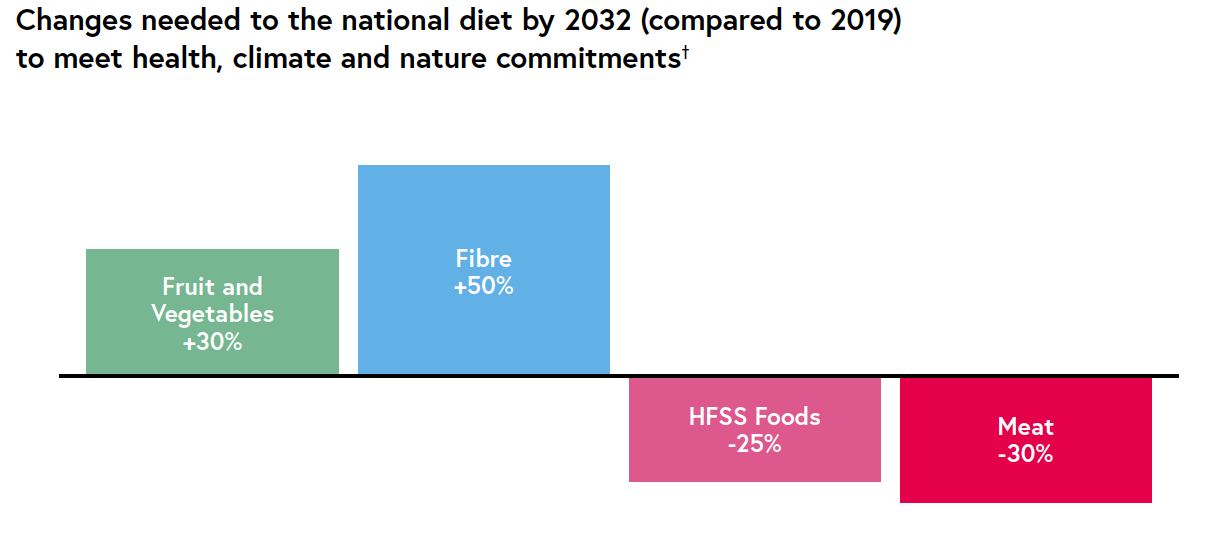
More recently the UK Government have published the report called Climate and Health: applying All Our Health. This resource aims to helps health and care professionals prevent ill health and promote wellbeing as part of their everyday practice. Regarding food, it states ‘The foods most damaging to our health are often those with the highest emissions, pollution, land and water use. A diet rich in plant-based foods, and lower in animal source foods which have a significant environmental impact, has benefits for health and the environment. Adherence to the Eatwell Guide which encourages a high consumption of fruits, vegetables, wholegrains and plant-based protein, could contribute to a 7% reduction in mortality and a 30% reduction in greenhouse gas emissions’.
We have a lot of work to do in the UK. Just taking vegetable consumption as an example as highlighted by the 2021 Veg Facts report; 18000 premature deaths in the UK are caused by not eating enough vegetables and legumes; about one third of children aged 5–10 years don’t even eat one portion of veg a day; 23% of children aged 11–16 eat less than a portion of veg a day; baked beans and pizza make up 16% of a child’s veg consumption; 77% of adults are eating less than the recommended 3–5 portions of vegetables a day; only 1.9% of food and drink advertising budget is spent on promoting veg consumption; household income impacts vegetable consumption with the poorest households eating the least; 15–20% of veg is consumed in the form of ultra-processed foods. The UK currently has 4.6 million metric tonnes of vegetables available, of which it produces 53%, that is, 2.4 million tonnes. For the UK population to meet 5-a-day (assuming half comes from veg) there would need to be 5.4 million tonnes available or 7.6 million tonnes for 7-a-day.
IMPLEMENTATION: Overall, the science is clear on what constitutes a healthy and sustainable diet. The more your diet is based around a variety of whole plant foods the better and it is perfectly safe to consume a 100% plant-based diet. The challenge comes with implementation. Access to healthy, nutritious food needs to be considered a human right. Governments need to focus on supporting farmers to produce the food that promotes health in sustainable farming systems. We need to control advertising and marketing of foods that cause harm. Our education systems need to support the implementation of dietary guidelines and they need to be showcased in all public sector settings. We also need to acknowledge, learn from and support Indigenous farming systems, because for millennia, Indigenous Peoples have been protecting their environment and biodiversity.
CONCLUSION: The good news is that we can each make a positive contribution as the power really is on our plate.
Please follow my organisation ‘plant-based health professionals UK’ on Instagram @plantbasedhealthprofessionals and facebook. You can support our work by joining as a member or making a donation via the website.
